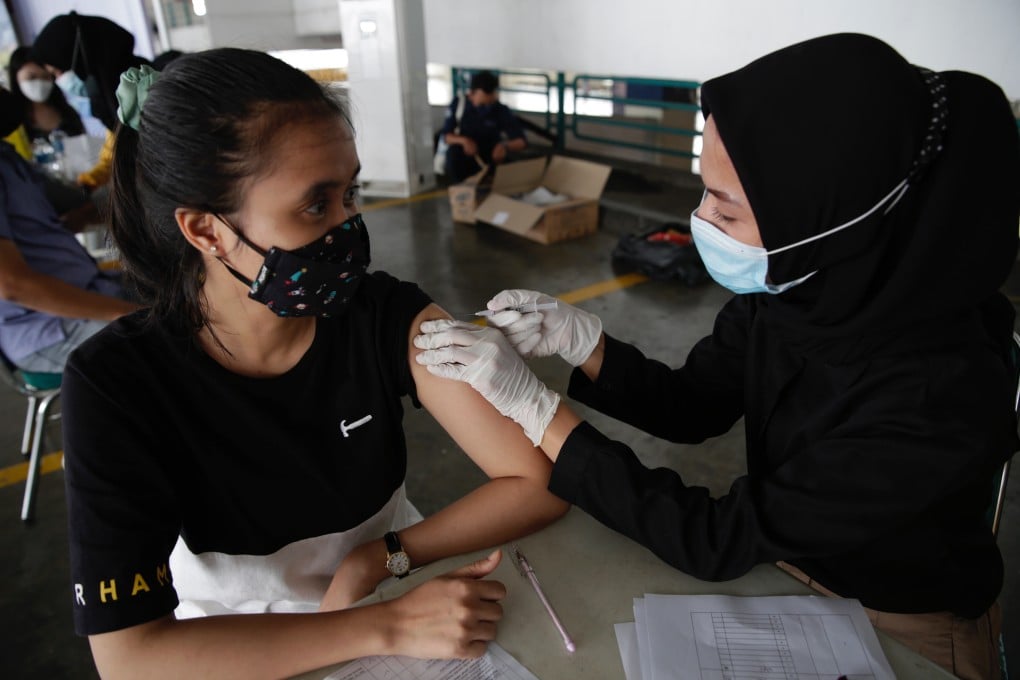Advertisement
Chinese vaccines meant for Indonesian prison stolen and sold to public
- Indonesian police have arrested four people, including a doctor at Tanjung Gusta Prison in Medan, accusing them of stealing and reselling more than 1,000 vaccines meant for inmates and staff
- Scandal, which follows uproar over reused nose swabs at a North Sumatra airport, has highlighted the overcrowded, unsanitary conditions in Indonesian jails
Reading Time:4 minutes
Why you can trust SCMP
5

Four people have been arrested on suspicion of stealing Covid-19 vaccines meant for the inmates and staff of an Indonesian prison and selling them on to members of the public.
The three civil servants and a property agent, arrested on May 21, had resold 1,085 of the Chinese-made Sinovac vaccines at 250,000 Indonesian rupiah (US$17) each, according to police.
Two of the suspects, identified only as IW and KS, who were working as doctors at Tanjung Gusta Prison in Medan and the North Sumatra Public Health Office respectively, administered the vaccines to members of the public on 15 separate occasions in both Medan and Jakarta, said North Sumatra’s Police Chief, RZ Panca Putra Simanjuntak.
Advertisement
The vaccines were supposed to have been used exclusively within the North Sumatra prison system.
This is the second time North Sumatra has been rocked by a Covid-19 corruption scandal this month. At the beginning of May it emerged that cotton swabs used to administer Covid-19 rapid tests to passengers at Kualanamu International Airport had been reused after being washed and repackaged.
The scandal at Tanjung Gusta has once again put the spotlight on what are widespread problems over corruption and sanitation within Indonesia’s vastly overcrowded prison system.
Advertisement
Select Voice
Select Speed
1.00x